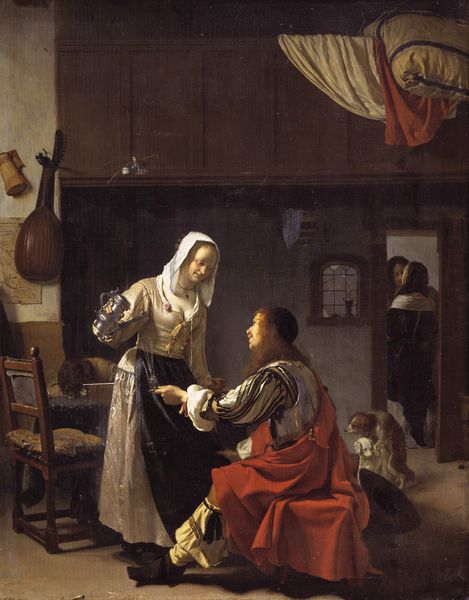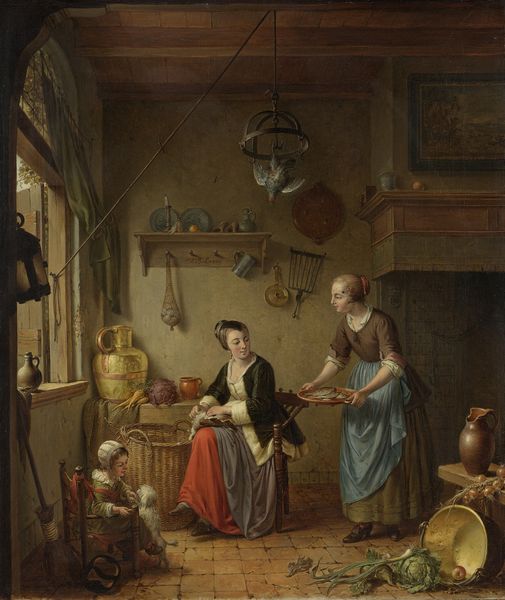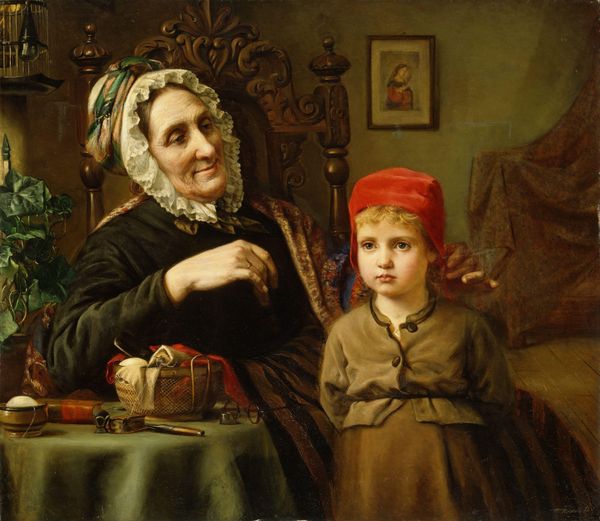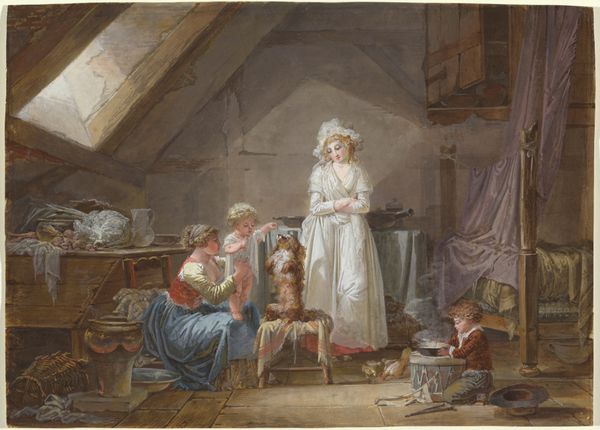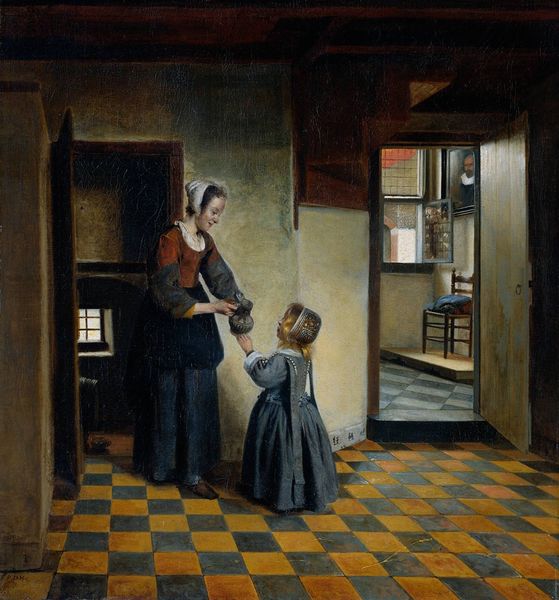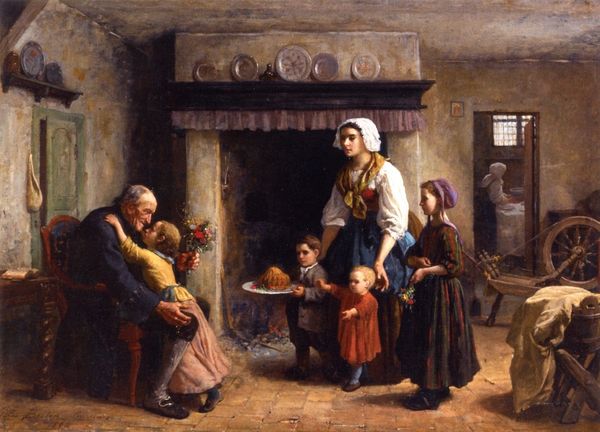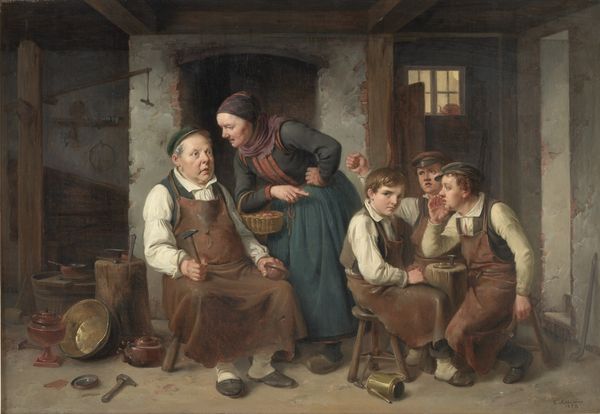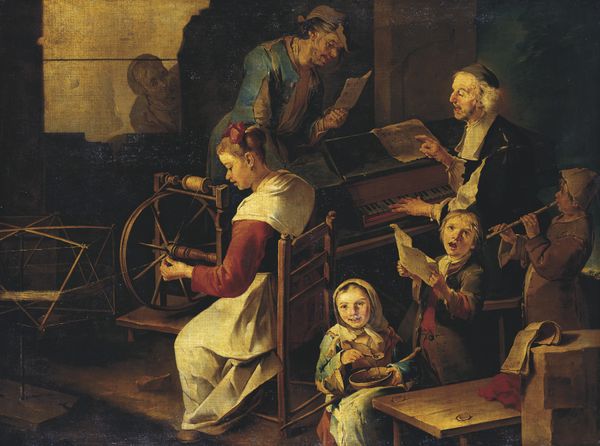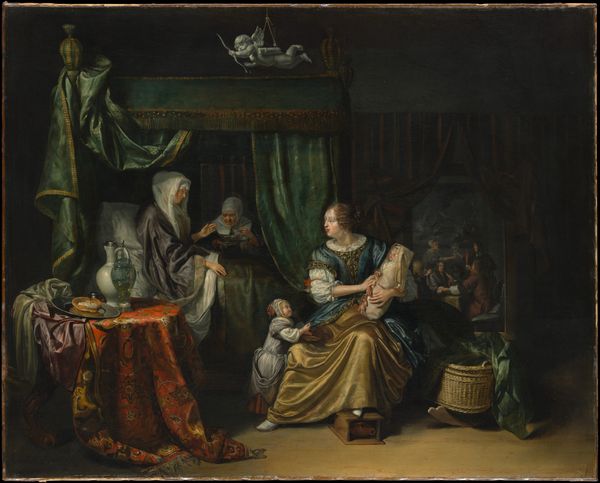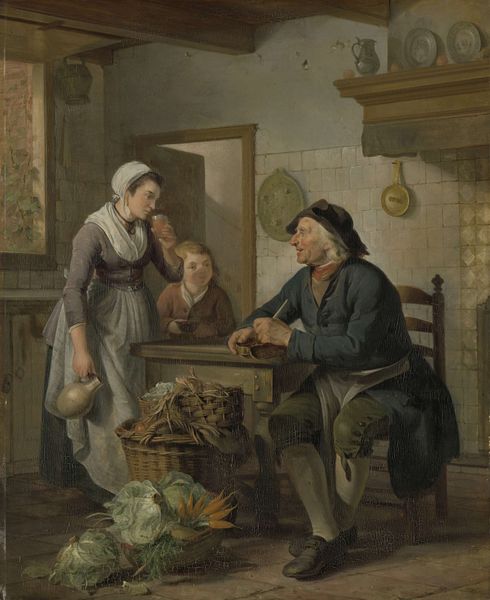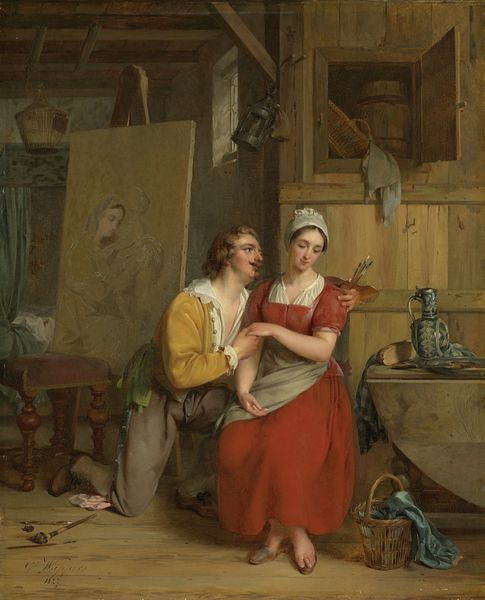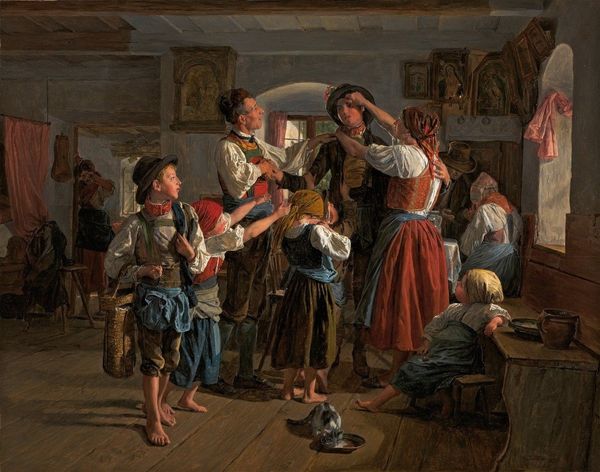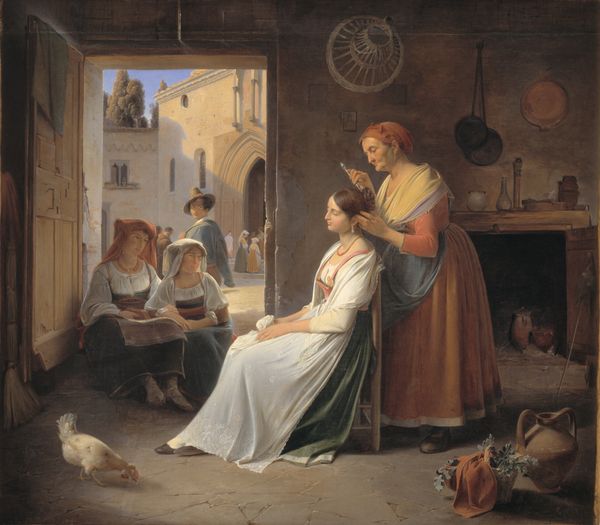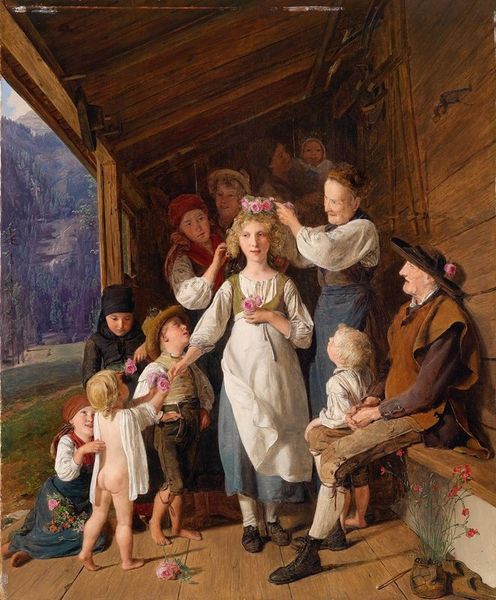
oil-paint
#
portrait
#
character portrait
#
allegory
#
baroque
#
oil-paint
#
oil painting
#
vanitas
#
group-portraits
#
genre-painting
#
portrait art
Copyright: Public domain
Editor: So, this is Jan Miense Molenaer’s "Allegory of Vanity" from 1633, an oil painting at the Toledo Museum of Art. My first thought is, this isn’t what I expect from a painting about vanity. It’s surprisingly busy, almost chaotic. How do you interpret this work? Curator: The perceived chaos is deliberate, wouldn't you agree? Molenaer, within the context of the Dutch Golden Age, invites us to meditate on mortality. Look at the skull beneath the woman, the lute—symbols, layered like cultural echoes. Editor: Ah, right, it's a vanitas painting! The skull is now so obvious. And all those instruments… Are they supposed to represent something about vanity too? Curator: Yes. The musical instruments suggest the fleeting nature of pleasure and beauty; their harmony is temporary, like youth. The child blowing bubbles also reinforces this idea. Does the monkey in chains offer any symbolism to you? Editor: Hmm, I'm not sure, enslaved to earthly desires, maybe? Like how the central figure stares at herself in the mirror, surrounded by material wealth and an almost desperate desire for self-adornment? Curator: Precisely! It embodies base desires – suggesting our pursuit of fleeting earthly delights often leads to a sort of captivity, distracting us from deeper meaning and our mortality. It's less a celebration of vanity and more of a moral warning. Editor: I hadn't quite seen that, I was so caught up in the surface details! All the objects seem to hold these different layers of significance, offering an insight into the psychological and cultural mindset of the time. Thank you! Curator: A canvas saturated with cultural symbols prompting contemplation; indeed, art provides insight that lasts beyond a single viewing, offering reflections through generations.
Comments
No comments
Be the first to comment and join the conversation on the ultimate creative platform.
